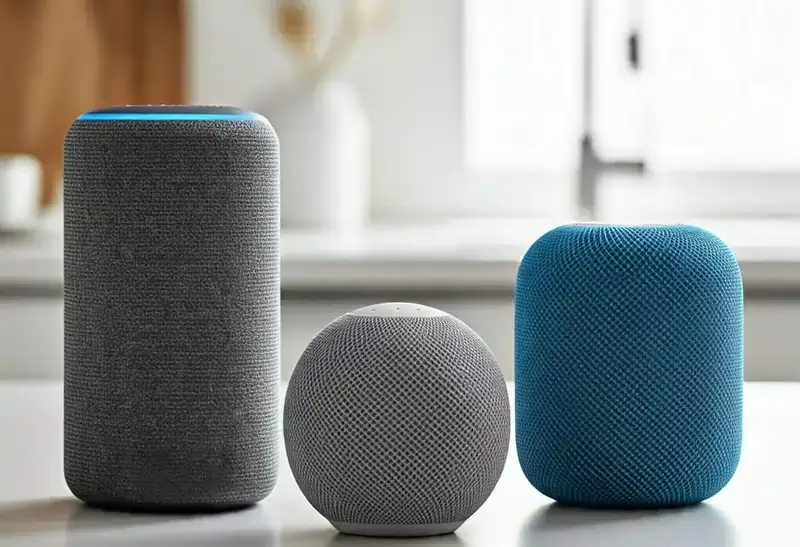Have you ever wished you could control all your home devices with the tap of a finger? Imagine a world where your lights dim, your thermostat adjusts, and your security cameras monitor your home—all seamlessly coordinated and managed with minimal effort.
Smart homes are no longer just a luxury—they’re necessary for tech-savvy households looking to simplify daily life. But with so many devices out there, managing them all can be a real headache.
Trying to control multiple devices from different brands can become chaotic fast. No one wants to fumble through five different apps to turn off a few lights or adjust their thermostat!
A smart hub can simplify your life by centralizing control over all your connected devices, enhancing convenience, and improving energy Efficiency. However, choosing the best smart hub tailored to your needs is crucial for achieving the seamless home automation experience you’re looking for. To help you make an informed decision, we’ve compiled a list of the best smart hubs available today, ensuring that your home is as intelligent as it is comfortable. Get ready to unlock the full potential of your smart home!
Key takeaway:
Learn what smart home hubs do and why they’re essential in a connected home.Discover the top smart home hubs in 2024 based on functionality, compatibility, and price.Get insights on which smart home hub works best with your devices.Make an informed decision with our detailed comparisons.
What is a Smart Home Hub?
A smart home hub is a centralized device that allows you to control all your smart devices, such as lights, thermostats, security cameras, and more, from one place. Think of it as the brain of your smart home infrastructure.
Key Features to Look For
Before diving into specific hubs, here are essential features you should consider when choosing the best smart home hub:
- Compatibility: Your hub should be compatible with various smart devices and standards (e.g., Zigbee, Z-Wave, Wi-Fi). Ensure it supports the devices you currently have or plan to purchase. With Matter compatibility in 2024, hubs will integrate better across brands like Apple, Google, and Amazon.
- User Interface: A good hub should have an easy-to-use application for mobile devices that makes setting up and managing your devices intuitive.
- Voice Control: Look for compatibility with popular voice assistants like Amazon Alexa, Google Assistant, or Apple HomeKit for voice command functionality.
- Automation Capabilities: Consider whether the hub supports automation routines, allowing you to program devices to work together or activate based on certain conditions (e.g., time, triggers). By the way, we have an entire article about Smart Home Automation.
- Local vs. Cloud Control: Hubs that offer local control allow your devices to work even if your Internet is down, whereas cloud-based hubs rely on an Internet connection.
- Security: Consider a hub that prioritizes security, especially if it involves cameras or locks in your home.
Top Smart Home Hubs on the Market
Here are some of the best smart home hubs you should consider:
1. Amazon Echo Hub:
PROS | CONS |
|---|---|
Easy to Use: Works well with voice commands through Alexa. Broad Compatibility: Supports a large number of smart devices. Affordable: It’s usually priced lower than other smart hubs. Great for Amazon Users: Works smoothly with Amazon products like Fire TV or Echo speakers. | Privacy Concerns: Some people worry about Amazon collecting voice data. Depends on the Internet: It needs a good Wi-Fi connection to work well. Limited Local Control: Most features rely on cloud services, so the hub may not work as expected if your Internet goes out. |
2. Google Nest Hub
PROS | CONS |
|---|---|
Google Assistant: Great for answering questions, managing schedules, and controlling devices with your voice. Touchscreen Display: The screen lets you watch videos, check cameras, or see your calendar. Integrates with Google Services: Works well with Gmail, YouTube, and Google Photos. | Limited Device Support: It doesn’t support as many third-party devices as Alexa or SmartThings. No Z-Wave Support: If you have Z-Wave devices, this hub won’t work with them. More miniature Ecosystem: Few smart home devices are directly compatible with Google compared to Amazon. |
3. Apple HomePod
PROS | CONS |
|---|---|
Perfect for Apple Users: If you’re in the Apple ecosystem, it integrates smoothly with iPhones, iPads, and TVs. High-Quality Sound: The HomePod is known for its excellent sound quality, making it great for music lovers. Privacy: Apple focuses heavily on user privacy, making your data more secure. | Expensive: Apple products, including the HomePod, are usually more costly than other hubs. Fewer Compatible Devices: It works primarily with devices that support Apple’s HomeKit, which limits your options. Less Customization: Not as flexible as other hubs like SmartThings or Hubitat. |
4. Samsung SmartThings Hub
PROS | CONS |
|---|---|
Broad Compatibility: Works with Zigbee, Z-Wave, and Wi-Fi devices to connect to almost any smart gadget. Supports Multiple Voice Assistants: Works with both Alexa and Google Assistant. Great for Automation: You can create detailed routines and automation, like turning off lights when you leave the house. | Complicated Setup: It can be tricky, especially if you’re new to smart home tech. Needs Internet: Like many hubs, most features depend on an internet connection. App Issues: Some users report that the SmartThings app can sometimes be slow or glitchy. |
5. Hubitat Elevation
PROS | CONS |
|---|---|
Local Control: It doesn’t rely on the cloud, meaning your devices work even if the Internet goes out. Advanced Automation: Great for users who want to create complex automations and routines. Privacy: Since it runs locally, there’s less worry about sending your data to cloud servers. | Not Beginner-Friendly: It’s more complicated to set up and use than other hubs, so it’s better for tech-savvy people. No Voice Assistant Built-In: You’ll need a separate device like Alexa or Google Assistant if you want voice control. Expensive: It costs more than essential hubs like the Echo or Google Nest. |
6. Aeotec Smart Home Hub
PROS | CONS |
|---|---|
Pricey: It’s more expensive than other hubs, especially considering it’s not much different from the Samsung SmartThings hub. Depends on the Internet: Like many other hubs, it needs the Internet to control most devices. No Voice Assistant: You must pair it with Alexa or Google Assistant for voice control. |
These pros and cons should help you decide which smart home hub best fits your home and needs!
Key Features to Look for in a Smart Home Hub

When choosing a smart home hub, it’s essential to understand what features Matter. A smart home hub is like the control center for all your smart devices, so picking the right one can make managing your home more accessible and efficient. Here are some key features to look for:
1. Compatibility
The most important feature is whether the hub works with your current and future devices. Some hubs only work with certain types of devices or brands. The main types of smart home device connections are:
- Zigbee: Many smart devices, like lights and locks, use a low-power connection.
- Z-Wave: Another popular smart device connection known for having a strong signal.
- Wi-Fi: Most hubs use Wi-Fi to connect to your home network, but not all devices support it.
- Bluetooth: Some hubs also use Bluetooth to connect to specific devices.
- Matter: a new protocol designed to unite smart home ecosystems
Before choosing a hub, ensure it’s compatible with the smart devices you own or plan to buy.
2. Voice Assistant Integration
Many smart home hubs have built-in voice assistants or can work with voice assistants like Amazon Alexa, Google Assistant, or Apple’s Siri. This lets you control your smart devices with simple voice commands, like “Turn off the lights” or “Lock the door.”
If you already use a voice assistant, you’ll want to ensure your hub supports it. For example, the Amazon Echo Hub works well with Alexa, while the Google Nest Hub is perfect for Google Assistant users.
3. Local vs. Cloud Control
Some smart home hubs control your devices through the cloud, while others use local control. Here’s the difference:
- Cloud-Based Hubs: These rely on the Internet to control your devices. You might lose control of your smart devices if your Internet goes out.
- Local-Control Hubs: These can manage your devices without needing the Internet. You can control things like lights or locks even if your Wi-Fi goes down.
If you want to ensure your devices always work, even during an internet outage, consider a hub with local control, like the Hubitat Elevation.
4. Security Features
Your smart home hub controls devices like cameras, door locks, and alarms, so security is essential. Look for hubs with strong encryption to protect your data, and ensure they follow the latest security standards. Some hubs also offer two-factor authentication (2FA), which adds an extra layer of security to prevent unauthorized access.
5. Ease of Use
You don’t want to spend hours setting up or controlling your smart home hub. The best hubs are user-friendly and have a simple setup Process. Many hubs come with a companion app that makes managing devices easy. Ensure the app is well-designed and reliable, allowing you to easily create automations or routines, like turning off all the lights when you leave home.
6. Automation Capabilities
One of the most excellent features of smart home hubs is the ability to automate tasks. Look for a hub that allows you to set up routines and automation. For example, you could create a routine where your lights automatically turn on when you unlock the front door, or your thermostat adjusts when you leave the house.
Hubs like the Samsung SmartThings Hub and Hubitat Elevation are known for their advanced automation options, allowing you to create highly customized routines based on time, location, or device triggers.
7. Scalability
As your smart home grows, you’ll likely add more devices. Make sure the hub you choose can add more intelligent gadgets. Some hubs, like the Samsung SmartThings Hub, are great for large setups because they can connect to many devices without slowing down or losing control.
8. Price
Finally, consider your budget. Some hubs are more expensive than others because they offer more features or higher-quality hardware. For example, the Apple HomePod is more expensive but offers excellent sound quality, while the Amazon Echo Dot is cheaper but still does a solid job as a smart home hub. Consider what features you need and how much you’re willing to spend.
When choosing a smart home hub, the most essential features are compatibility, voice assistant integration, local or cloud control, security, and ease of use. Look for a hub that fits your current smart home setup and gives you room to grow. You can create a more connected, automated, secure home with the correct hub!
Smart Home Hubs Comparisons
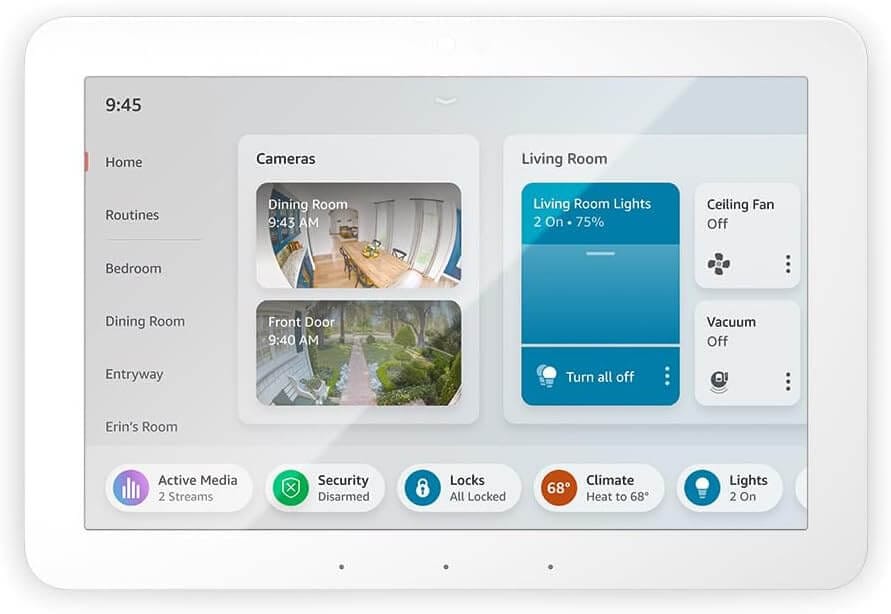 Amazon Echo Hub Amazon Echo Hub |  Google Nest Hub Google Nest Hub | 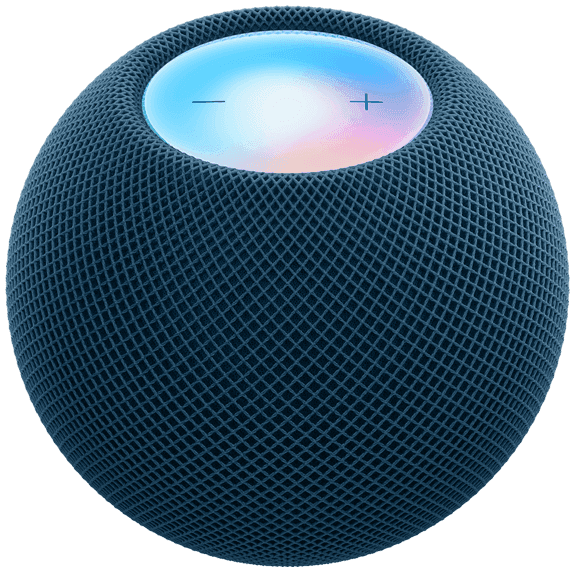 Apple HomePod Apple HomePod | |
| Price | Check the Price on Amazon You’re paying extra for the built-in screen and Google Assistant integration. | Check the Price on Amazon You’re paying extra for the built-in screen and Google Assistant integration. | $299.99 It works with many devices and supports Zigbee Wi-Fi and Matter, making it very flexible. |
| Compatibility | It is also easy to use, mainly if you already use Google services. The screen is user-friendly, but lacking Z-Wave and Zigbee support means you may need more apps to control specific devices. | It allows for some automation with Google routines but is more limited than other hubs. | Very easy to set up and use, especially if you’re familiar with Alexa. The app is simple, and voice commands make controlling devices a breeze. |
| Ease of Use | It offers simple automation using Apple’s Home app but is not as flexible or customizable as other hubs. | It is also easy to use, mainly if you already use Google services. The screen is user-friendly, but lacking Z-Wave and Zigbee support means you may need more apps to control specific devices. | It has basic automation options using Alexa routines, which are simple to set up but not very advanced. |
| Automation | Apple is famous for its focus on privacy and security. Data is encrypted, and Apple doesn’t track your activity like other companies might. | It offers simple automations using Apple’s Home app but is not as flexible or customizable as other hubs. | Apple is famous for its focus on privacy and security. Data is encrypted, and Apple doesn’t track your activity like other companies might. |
| Security | Apple is famous for its focus on privacy and security. Data is encrypted, and Apple doesn’t track your activity like other companies might. | Google is known for its strong security measures, but there are still concerns about data privacy. | Apple is famous for its focus on privacy and security. Data is encrypted, and Apple doesn’t track your activity like other companies might. |
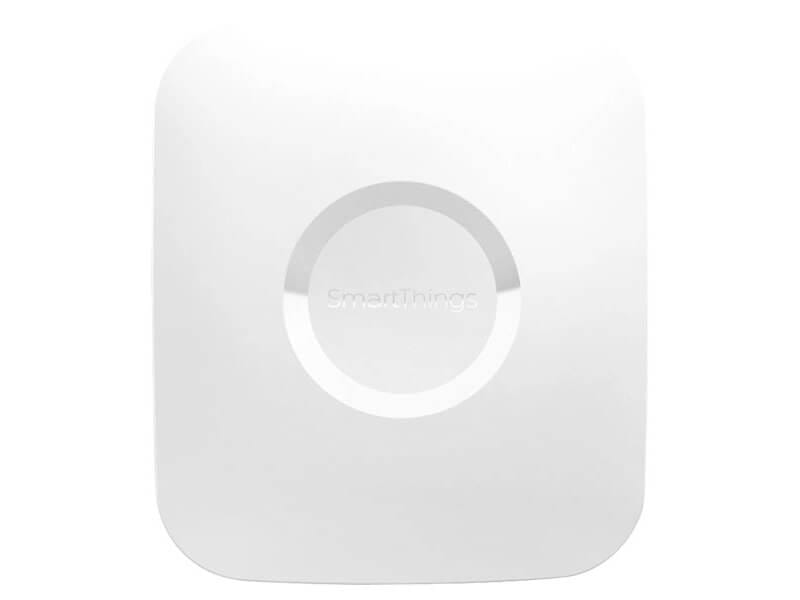 Samsung SmartThings | 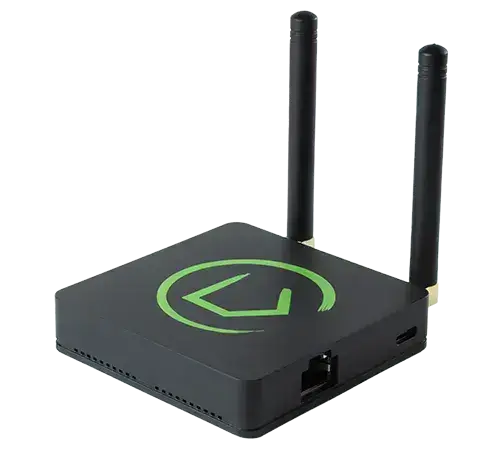 Hubitat Elevation Hubitat Elevation | 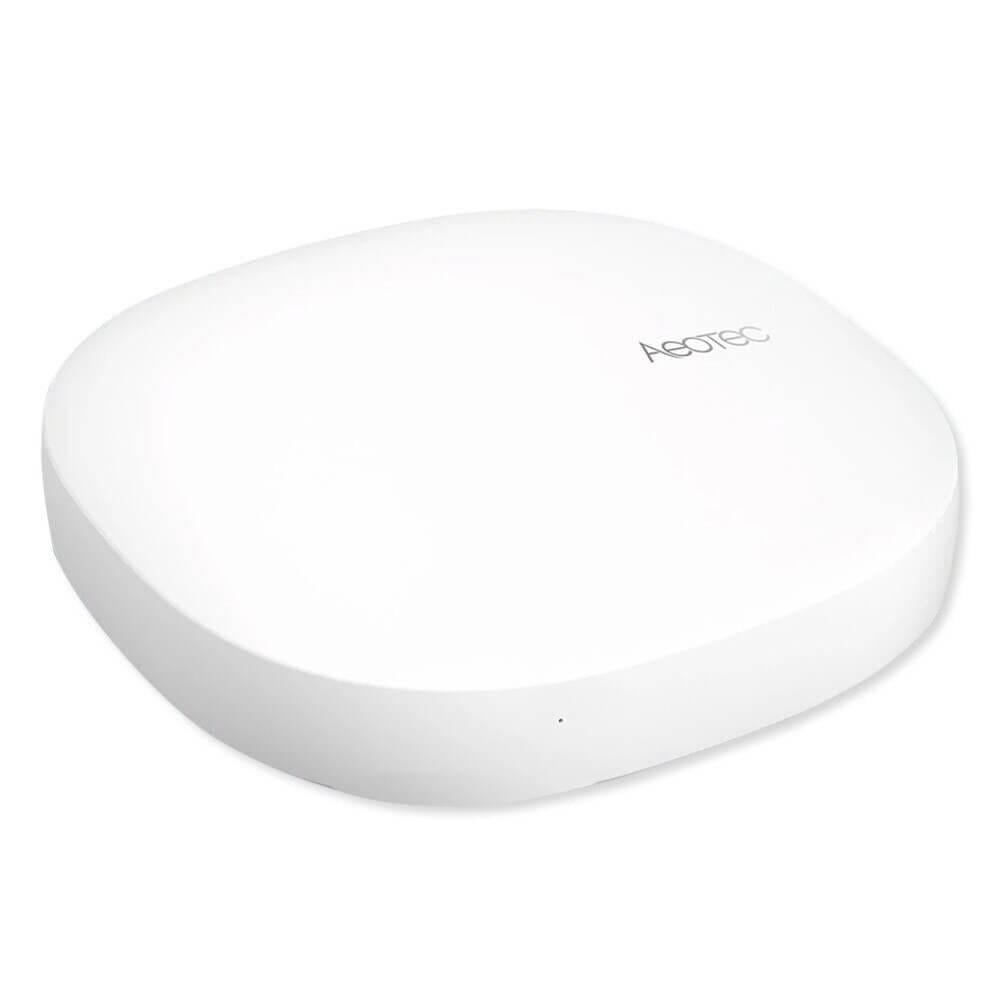 Aeotec Smart Home Aeotec Smart Home | |
| Price | Check The Price on Amazon It’s a solid mid-range option for those who want compatibility with many devices. | Although slightly pricier, it’s a powerful option for users who want local control and advanced automation. | Check the Price on Amazon It is compatible with Zigbee and Z-Wave devices and allows for local control, making it ideal for more advanced setups. |
| Compatibility | It offers solid security, but since it uses cloud control, there is a small risk if there’s ever a breach in the cloud. | Similar to the SmartThings Hub, it’s relatively easy to use but can be tricky for beginners due to its wide range of device support. | It is one of the most compatible hubs, supporting Zigbee, Z-Wave, Matter, and Wi-Fi devices, making it an excellent choice for mixed-brand homes. |
| Ease of Use | Like the Samsung SmartThings Hub, it offers robust automation features, allowing for highly customizable routines. | It offers solid security, but since it uses cloud control, there is a small risk if there’s ever a breach in the cloud. | It’s not beginner-friendly. It’s more complex to set up and better suited for tech-savvy users who want to customize their automation. |
| Automation | It offers solid security, but since it uses cloud control, there is a small risk if there’s ever a breach in the cloud. | Excellent automation capabilities. You can create complex automation based on device actions, time, or location, making it a top choice for those who want more control. | Like the SmartThings Hub, it offers good security, but cloud control still leaves room for potential vulnerabilities. |
| Security | It offers solid security, but since it uses cloud control, there is a small risk if there’s ever a breach in the cloud. | Because it uses local control, your data stays in your home, making it one of the most secure options. | Like the SmartThings Hub, it offers good security, but cloud control still leaves room for potential vulnerabilities. |
Each smart home hub has strengths and weaknesses, so the best depends on your needs. The Amazon Echo Hub is an excellent choice if you want something affordable and easy to use. If you wish for the best automation capabilities and don’t mind a more complex setup, go with the Hubitat Elevation. The Apple HomePod is the natural fit for Apple users, while the Samsung SmartThings Hub is perfect if you want broad compatibility and advanced automation. Choose the hub that fits your home and your needs best!
Which Smart Home Hub is Best for You?
With so many smart home hubs available, finding the right one can feel overwhelming. Each hub has strengths, from device compatibility to ease of use and automation features. Whether you’re just starting to build your smart home or looking to upgrade your current system, this guide will help you decide which smart home hub is best for you.
1. ForBeginners: Amazon Echo Hub
The Amazon Echo Hub is a great starting point if you’re new to smart homes. It’s easily set up, budget-friendly, and works with many devices. Plus, you get Alexa, a powerful voice assistant, to control your smart home with simple commands like “Turn off the lights” or “Lock the door.”
- Why it’s great for beginners: The Echo Hub is affordable, widely compatible, and easy to control with your voice.
- Best for People who want a simple setup and access to essential smart home functions without hassle.
Recommendation: Choose the Amazon Echo Hub if you’re looking for a reliable, budget-friendly hub to get your smart home up and running quickly.
With so many smart home hubs available, finding the right one can feel overwhelming. Each hub has strengths, from device compatibility to ease of use and automation features. Whether you’re just starting to build your smart home or looking to upgrade your current system, this guide will help you decide which smart home hub is best for you.
2. For Google Users: Google Nest Hub
If you already use Google services like Gmail, YouTube, or Google Photos, the Google Nest Hub might be your best choice. It integrates seamlessly with other Google products, making it perfect for managing your calendar, watching videos, or checking your photos.
- Why it’s great for Google users: It works perfectly with Google Assistant and is excellent for managing your day and controlling smart devices.
- Best for People already invested in the Google ecosystem who want a hub with a built-in display for easy control.
Recommendation: Choose the Google Nest Hub if you want a touchscreen display and love using Google Assistant to control your smart home.
3. For Apple Fans: Apple HomePod (Siri Hub)
The Apple HomePod is the ideal smart home hub if you’re deeply into the Apple ecosystem. It works exclusively with Apple’s HomeKit platform, which syncs perfectly with your iPhone, iPad, and Apple TV and supports the Matter smart home standard. Plus, the sound quality is fantastic, making it a great speaker.
- Why it’s great for Apple fans: Seamless integration with Apple devices and a strong focus on privacy and security.
- Best for People who want to control their smart home using Siri and love the Apple ecosystem.
Recommendation: Pick the Apple HomePod if you’re all-in with Apple products and value high-quality sound and privacy.
4. For Advanced Users: Hubitat Elevation
If you love digging into tech and creating detailed automation, Hubitat Elevation is your hub. This hub offers local control, meaning it doesn’t rely on the cloud or the Internet, making it more reliable and secure. It also allows for complex automation that goes beyond what most hubs offer.
- Why it’s great for advanced users: Local control ensures fast and secure performance, while advanced automation lets you create highly customized routines.
- Best for Tech-savvy users who want complete control over their smart home devices and automation.
Recommendation: Choose Hubitat Elevation if you’re experienced with smart home tech and want a hub that offers complete control and flexibility.
5. For Mixed Device Homes: Samsung SmartThings Hub
If your smart home includes a variety of brands and device types, the Samsung SmartThings Hub is one of the most versatile options. It supports Zigbee, Z-Wave, and Wi-Fi devices, which work with almost anything. It also allows for detailed automation and routines, making it great for beginners and experienced users.
- Why it’s great for mixed device homes: It supports various devices from different brands, making it highly compatible.
- Best for People who want a flexible hub to manage a broad, diverse range of smart home devices.
Recommendation: If you have a variety of smart devices and need a hub to manage them all, opt for the Samsung SmartThings Hub.
6. For Those Who Want Local Control: Aeotec Smart Home Hub
The Aeotec Smart Home Hub is essentially a version of the SmartThings Hub, but it also emphasizes local control for faster and more secure automation. It’s perfect for users who want the flexibility of SmartThings but prefer not to rely on cloud-based systems as much.
- Why it’s great for local control: Like Hubitat, it allows for local automation, meaning your devices will work even if your Internet goes down.
- Best for People who want a SmartThings-like experience but with more focus on local control for privacy and security.
Recommendation: Choose the Aeotec Smart Home Hub if you like the features of SmartThings but prefer local control for better security and reliability.
Bottom Line
Choosing the right smart home hub can transform how you manage your home, making it more efficient, automated, and easy to control. Whether you’re an Apple enthusiast, prefer Google, or need a highly customizable platform, there’s a smart home hub for every need. As technoloTechnologys, the market is brimming with excellent options in 2024. Explore, compare, and find the hub that perfectly aligns with your home setup. Ready to take control of your smart home? Start shopping for your ideal hub today!
FAQ
1. Do I need a smart home hub to use voice assistants like Alexa or Google Assistant?
No, you don’t necessarily need a smart home hub to use voice assistants. Devices like Amazon Echo and Google Nest already have Alexa or Google Assistant built-in, which can control smart home devices directly. However, a hub can give you better automation options and allow you to control devices that don’t natively support voice assistants.
2. What’s the difference between cloud control and local control?
Cloud control relies on the Internet to manage your devices. This can result in delays or disruptions if your Internet is slow or down. Local control (like in Hubitat Elevation) keeps everything within your home’s network, making automation faster and more reliable, even without an internet connection.
3. Can I use a smart home hub with devices from different brands?
Yes, most smart home hubs support multiple brands and protocols. For example, the Samsung SmartThings Hub and Hubitat Elevation support Zigbee, Z-Wave, Wi-Fi, and the new Matter protocol, ensuring that devices from various manufacturers can communicate easily.
4. Which smart home hub is best for beginners?
The Amazon Echo Hub is best for beginners due to its affordability, ease of use, and compatibility with a wide variety. It’s simple to set up, and you can control everything commands using Alexa.
5. What’s the best smart home hub for Apple users?
The Apple HomePod (Siri Hub) is perfect for Apple users. It integrates seamlessly with Apple’s HomeKit platform, allowing you to control devices using Siri and manage them through the Home app on your iPhone, iPad, or Apple TV. It also supports the Matter smart home standard, making adding more devices easier.
6. Are smart home hubs secure?
Most smart home hubs offer good security, but some are more secure than others. Apple HomePod and Hubitat Elevation are known for prioritizing privacy and security, with local control options and strong encryption. Cloud-based hubs like Amazon Echo and Google Nest offer good security protection and are more vulnerable to breaches if connected to the Internet.
7. Can I automate tasks with a smart home hub?
Yes, smart home hubs allow you to automate tasks, like turning off lights when you leave or adjusting the thermostat at a specific time. Hubitat Elevation and Samsung SmartThings offer advanced automation capabilities, while Amazon Echo and Google Nest provide simpler, more straightforward.
8. Do I need a smart home hub for every room?
No, you don’t need a hub for every room. Most hubs cover your entire home, but the range may vary depending on your Wi-Fi or mesh network. If your home is large, you may want to consider Wi-Fi extenders or mesh systems to ensure complete coverage.
9. Can I use multiple smart home hubs in one home?
Yes, you can use multiple hubs, but it can complicate things. Most users prefer to stick with one hub that’s compatible with all their devices for easier control. However, in some cases, advanced users might integrate multiple hubs (like Apple HomePod for Apple devices and Samsung SmartThings for others) to handle different ecosystems.
10. What happens if my Internet goes down? Will my smart devices still work?
If you have a hub with local control like Hubitat Elevation or Aeotec Smart Home Hub, your devices will continue to work even if the Internet is down. However, hubs relying on cloud control, like Amazon Echo or Google Nest, might stop functioning if the Internet goes out.
11. What is the difference between Zigbee, Z-Wave, and Wi-Fi?
These are different wireless protocols used by smart home devices to communicate with each other and the hub:
- Zigbee: It has low power, is in a good range, and is ideal for intelligent lighting and sensors.
- Z-Wave: Longer range than Zigbee, great for larger homes.
- Wi-Fi: Most expected to be slower and drain more power.
- Matter simplifies connections across various platforms and devices.
These are different wireless protocols smart home devices use to communicate with each other and the hub. The new Matter protocol aims to unify these differences, allowing devices using Zigbee, Z-Wave, and Wi-Fi to work together more efficiently. Samsung SmartThings and Hubitat Elevation support Zigbee and Z-Wave, while Amazon Echo supports Zigbee and Wi-Fi.
12. Are smart home hubs worth it?
Yes, if you want to automate and manage your smart home fully. A hub allows for smoother automation, centralized control, and connecting different brands of devices, making your smart home more efficient and easier to use.
13. Can I expand my smart home setup over time?
Absolutely! Most smart home hubs are designed to grow with your setup. You can start with a few devices and gradually add more as needed. Hubs like Samsung SmartThings and Hubitat Elevation support a wide range of devices, so they can easily handle an expanding smart home.
14. What is the Matter protocol, and why is it important?
Matter is a new, open-source protocol designed to make smart home devices from different manufacturers work together more efficiently. Apple, Google, Amazon, and others support it. Matter aims to improve compatibility and reduce fragmentation in smart home ecosystems. With Matter, you can set up and control devices from different brands without worrying about compatibility issues.


